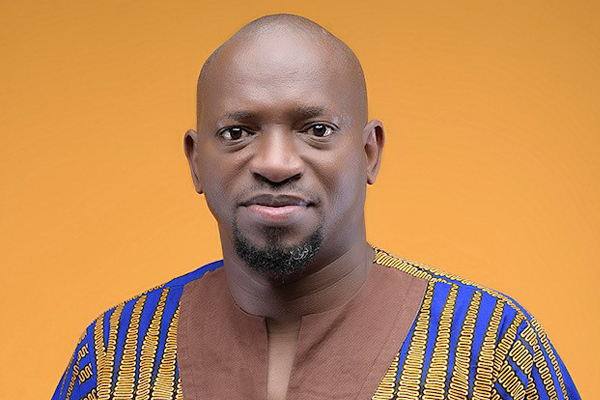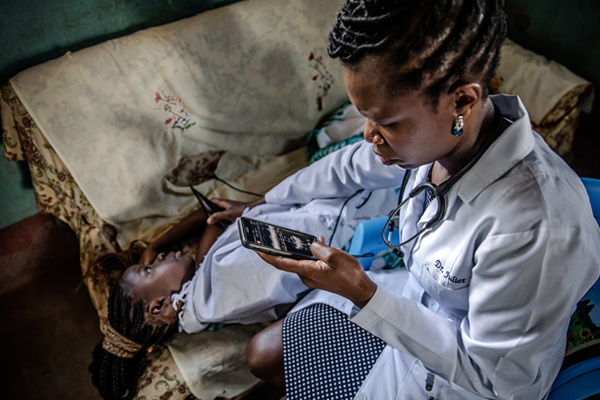#20
NOVARTIS
NOVARTIS EAST AFRICA CLUSTER EMBRACES AWARENESS ROLE BEYOND COVID-19
The Covid-19 Pandemic has wreaked havoc on lives and livelihoods. More so, it has enhanced the understanding of the gaps in Kenya’s healthcare systems due to the immense pressure the Covid-19 disease that is caused by the SARS-CoV-2 virus. The Pandemic has exerted on the healthcare workforce, hospitals, and accessibility of treatment options. The pharmaceutical industry has continuously played an integral role in the fight against the coronavirus, with unprecedented collaborations to develop a vaccine as well as ensuring regular production of other medicines to ensure treatments for other conditions are not impacted as well through the concerted efforts towards the Covid-19 disease.
“Other key trends we have seen locally include the increase of allocation towards health to combat the Covid-19 and heightened awareness about general hygiene and sanitation which are critical to disease prevention,” said Anthony Mwangi, Head of Novartis East Africa Cluster (EAC). “The scale-up of digitization in healthcare has also been remarkable.”

At the height of the Covid-19 pandemic, healthcare professionals (HCPs) who are used to face-to-face training and development sessions, have had to swiftly transition to virtual learning. Towards this, in July of 2020, Novartis partnered with MedShr, a platform that provides free, interactive case-based learning and disease-specific discussion groups available through a smartphone app. One of the critical components was developing a Covid-19 education program to support and educate HCPs across Africa and the Middle East, out of which over 29,000 HCPs were drawn from East Africa. Data from the app showed that 80 per cent of the participants expressed confidence in managing patients with Covid-19.
According to Anthony, capacity building is a crucial pillar for Novartis EAC to train, upskill, and retool HCPs as part of healthcare system strengthening and improvement. For instance, despite heart disease being a growing problem in Kenya, many people remain undiagnosed due to a lack of doctors with relevant expertise and inadequate health care infrastructure. Through a partnership with the University of Nairobi dubbed “Echo for Life”, Novartis sponsored the training of healthcare professionals to diagnose and treat cardiovascular disease. As part of the partnership, 150 healthcare professionals have been trained in cardiac diagnosis and echocardiogram across the country.
Before the “Echo for Life” program, there were only 20 doctors who could administer echocardiograms in the country.
“Once we empowered the doctors, we realized that there was a gap in diagnosis due to lack of access to essential ultrasound equipment,” says Anthony. “We went a step further to donate 30 handheld portable ultrasound devices that were distributed to the select trained doctors under the partnership spread across the country at no cost, hence extending the patients’ benefit particularly for rural and low-income communities.”
The handheld portable ultrasound devices connected to a mobile phone enable imaging of body organs and tissues at the patient’s convenience, moving away from the traditionally bulky and expensive echocardiograms equipment. Anthony added that the “Echo for Life” program was a great testament to the power of partnerships, an emerging trend he expected to continue to post Covid-19 Pandemic.

In yet another instance demonstrating how leveraging the power of partnerships can strengthen healthcare systems, Novartis has played a critical role in shaping the kidney transplant landscape in Kenya. Interlife is a Public-Private Partnership (PPP) between Kenyatta National Hospital (KNH) and Novartis that was established 10 years ago to address the gap in kidney transplants in Kenya. This was an exchange training program between KNH and Hospital Clinic De Barcelona in Spain and supported by the Spanish Association of Transplantation that helped KNH become a Centre of Excellence for kidney transplants. Through the Interlife program, 220 transplants have been conducted to date in Kenya, prior to which, many patients had to seek kidney transplants in other countries such as India. This was a substantial financial burden for many families. Through this partnership, Interlife has significantly reduced the overall cost of transplants.
According to the Africa Development Bank, 62 per cent of the population live below $2 a day, with many patients paying out-of-pocket, making healthcare expensive and therefore beyond the reach of many people. Medical fundraisings are a common and frequent feature in the social fabric that is Kenya. This kind of charity is unfortunately unsustainable, making a case for accelerated Universal HealthCare (UHC). Besides UHC, increased investment into healthcare is critical to encourage local research and development. Clinical trials are the cornerstone for medical innovation and groundbreaking therapies to address current and emerging diseases.
“We are a pharma company in the business of healthcare,” said Anthony. “That means we cannot have a patient-focused strategy without critically accessing the patient journey since medicine dispensing is always at the tail-end of that spectrum while financing plays a critical role across the patient journey.”
Critical foundational aspects of the patient journey include screening to ensure proper diagnosis, which directly correlates to treatment outcomes. In this regard, Novartis EAC donated two crucial machines in the fight against Sickle Cell Disease (SCD) to the Children Sickle Cell Foundation (CSCF) and Baraka Medical Centre in Mathare, which has registered more than 700 SCD patients. Hemoglobin electrophoresis machine is vital for screening and evaluating the quantity of normal and abnormal hemoglobins that may result in blood disorders such as SCD while the Biochemistry Analyser calculates the concentration of specific substances in the blood and other body fluids to accurately diagnose disease. However, diagnosis cannot be looked at in isolation.

during a home visit at Sylvia’s family house on November 15, 2020 in Mbitini, Kitui County, Kenya. Photo | Luis
Tato | Getty Images for Novartis
According to the World Health Organization (WHO), healthcare professional training is essential, particularly to address the widening chasm of doctor-patient ratios, which in extreme cases range from one doctor to over 35,000 patients depending on specialists. WHO recommends one doctor for every 1,000 patients.
Tied to diagnosis is the evidence-based management through lab investigations, followed by treatment options available to the patient. Depending on finances, patients at this stage can opt to seek medical help or self-medicate, which has resulted in a ticking time bomb due to drug resistance.
Besides the misuse of antibiotics, the veterinary and agricultural sectors have also contributed to the rise of antimicrobial resistance (AMR). In addition, substandard and falsified medicines increase the risk of drug resistance and public distrust of medicines. For instance, over 60 per cent of anti-malarials circulating in sub-Saharan Africa are estimated to be fake, resulting in over 110,000 deaths every year.
To continue consistent production and delivery of medicines, Novartis continues to play their role towards supporting governments in the disseminating information on the risks of self-medication.
“We play a role in public awareness to educate patients on the risks of self-medication and encourage them to seek professional help to mitigate antimicrobial resistance, which has emerged as a major threat to public health,” posits Anthony. “Regarding the impact of Covid-19, we remain resilient in our operations ensuring that our supplies remain uninterrupted and patients continue to access Novartis medicine in a timely manner and by so doing, we believe that we are extending, improving and transforming people’s lives.”
Novartis in East Africa is organized as one cluster that covers nine countries, namely, Kenya, which is the head office for East Africa as well as the HQ for Novartis sub-Sahara Africa, Uganda, Tanzania, Rwanda, Burundi, Ethiopia, Djibouti, Eritrea and Sudan. Novartis is over 20 years old in Kenya, with the cluster having in excess of 122 employees.
Novartis as a corporation, supports a flexible work culture and channeled $ 500 to each employee to help them set up functional home offices, when Covid-19 hit the world. Due to this good employee-centered practice, Top Employers Institute has certified Novartis in Kenya as Top Employer of the Year for three consecutive years (2018-2020).
Novartis East Africa cluster focuses on five key therapeutic areas namely, Cardio-Renal-Metabolic, Oncology/ Immunology, Hepatology and Dermatology (IHD), Neuroscience, Communicable Diseases and Ophthalmology.
Currently, there are four malaria clinical trials running across the East Africa Cluster at different phases of execution, underpinning Novartis as a top pharmaceutical brand transforming lives in East Africa, out of Nairobi, Kenya.
Globally, at Novartis, reimagining medicine is core to everything we do. The CEO, Vas Narasimhan shared some key moments from Q2 2021 on innovation and access to medicine recently that included:
- At Novartis, the work to develop innovative medicines across the spectrum of disease enables them see promising readouts in areas of high unmet need, including for medicines across new technology platforms.
- In reaching a major milestone in Novartis efforts to tackle the global health access challenge, Novartis has now delivered over 1 billion courses of antimalarial treatment as part of Novartis’s effort to tackle malaria head-on.
- Among other efforts, Novartis performance is driven by momentum of the firm’s innovative medicines across cardiology, dermatology, oncology and other areas.
















